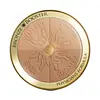What's inside
What's inside
 Key Ingredients
Key Ingredients

 Benefits
Benefits

No benefits
 Concerns
Concerns

 Ingredients Side-by-side
Ingredients Side-by-side

Mica
Cosmetic ColorantDiisostearyl Malate
EmollientSynthetic Wax
AbrasiveNylon-12
Ethylhexyl Palmitate
EmollientPolybutene
Lauroyl Lysine
Skin ConditioningDimethicone
EmollientDimethicone/Methicone Copolymer
Inositol
HumectantMaltodextrin
AbsorbentMucuna Pruriens Seed Extract
AstringentKaolin
AbrasiveOctyldodecyl Stearoyl Stearate
EmollientCaprylyl Glycol
EmollientPhenethyl Alcohol
MaskingIron Oxides
Synthetic Fluorphlogopite
Tin Oxide
AbrasiveTitanium Dioxide
Cosmetic ColorantCI 19140
Cosmetic ColorantMica, Diisostearyl Malate, Synthetic Wax, Nylon-12, Ethylhexyl Palmitate, Polybutene, Lauroyl Lysine, Dimethicone, Dimethicone/Methicone Copolymer, Inositol, Maltodextrin, Mucuna Pruriens Seed Extract, Kaolin, Octyldodecyl Stearoyl Stearate, Caprylyl Glycol, Phenethyl Alcohol, Iron Oxides, Synthetic Fluorphlogopite, Tin Oxide, Titanium Dioxide, CI 19140
Ingredients Explained
These ingredients are found in both products.
Ingredients higher up in an ingredient list are typically present in a larger amount.
Dimethicone is a type of synthetic silicone created from natural materials such as quartz.
What it does:
Dimethicone comes in different viscosities:
Depending on the viscosity, dimethicone has different properties.
Ingredients lists don't always show which type is used, so we recommend reaching out to the brand if you have questions about the viscosity.
This ingredient is unlikely to cause irritation because it does not get absorbed into skin. However, people with silicone allergies should be careful about using this ingredient.
Note: Dimethicone may contribute to pilling. This is because it is not oil or water soluble, so pilling may occur when layered with products. When mixed with heavy oils in a formula, the outcome is also quite greasy.
Learn more about DimethiconeEthylhexyl Palmitate, also known as octyl palmitate, is created from 2-ethylhexyl alcohol and palmitic acid. It is a fatty acid ester.
The fatty acid content of Ethylhexyl Palmitate makes it an emollient. Emollients help soften and hydrate your skin by trapping moisture within.
Ethylhexyl Palmitate is also used to help improve the texture of cosmetics. It helps other ingredient dissolve in products and help disperse ingredients more evenly.
You'll likely find this ingredient in sunscreen, as it is often used to mix UV-blocking ingredients such as avobenzone and ethylhexyl triazone.
It can also help stabilize the fragrances in a product as a fragrance fixative.
Ethylhexyl Palmitate can be used to substitute mineral oil.
Due to its high fatty acid content, it may not be fungal-acne safe.
Learn more about Ethylhexyl PalmitateMica is a naturally occurring mineral used to add shimmer and color in cosmetics. It can also help improve the texture of a product or give it an opaque, white/silver color.
Serecite is the name for very fine but ragged grains of mica.
This ingredient is often coated with metal oxides like titanium dioxide. Trace amounts of heavy metals may be found in mica, but these metals are not harmful in our personal products.
Mica has been used since prehistoric times throughout the world. Ancient Egyptian, Indian, Greek, Roman, Aztec, and Chinese civilizations have used mica.
Learn more about MicaPolybutene is used to help control the viscosity of a product. This just means it helps adjusts the texture.
It is a polymer and does not get absorbed into the skin due to its large size.
Studies found this ingredient did not irritate skin in concentrations below 15%.
Learn more about PolybuteneThis ingredient is a combination of red, black, and yellow iron oxide pigments. This combination of colors is usually found in foundation, because it results in a "skin" color.